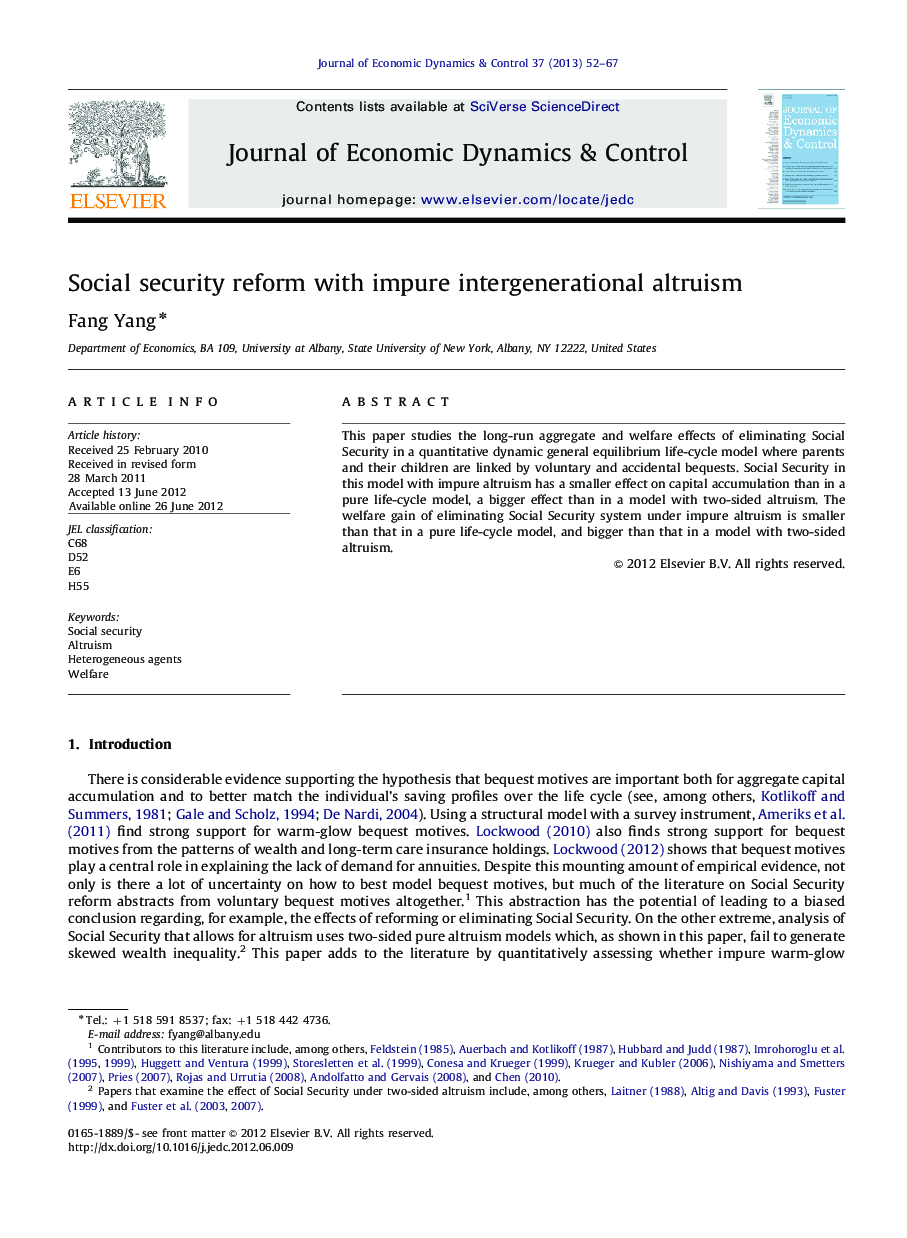| Article ID | Journal | Published Year | Pages | File Type |
|---|---|---|---|---|
| 5098810 | Journal of Economic Dynamics and Control | 2013 | 16 Pages |
Abstract
This paper studies the long-run aggregate and welfare effects of eliminating Social Security in a quantitative dynamic general equilibrium life-cycle model where parents and their children are linked by voluntary and accidental bequests. Social Security in this model with impure altruism has a smaller effect on capital accumulation than in a pure life-cycle model, a bigger effect than in a model with two-sided altruism. The welfare gain of eliminating Social Security system under impure altruism is smaller than that in a pure life-cycle model, and bigger than that in a model with two-sided altruism.
Related Topics
Physical Sciences and Engineering
Mathematics
Control and Optimization
Authors
Fang Yang,
